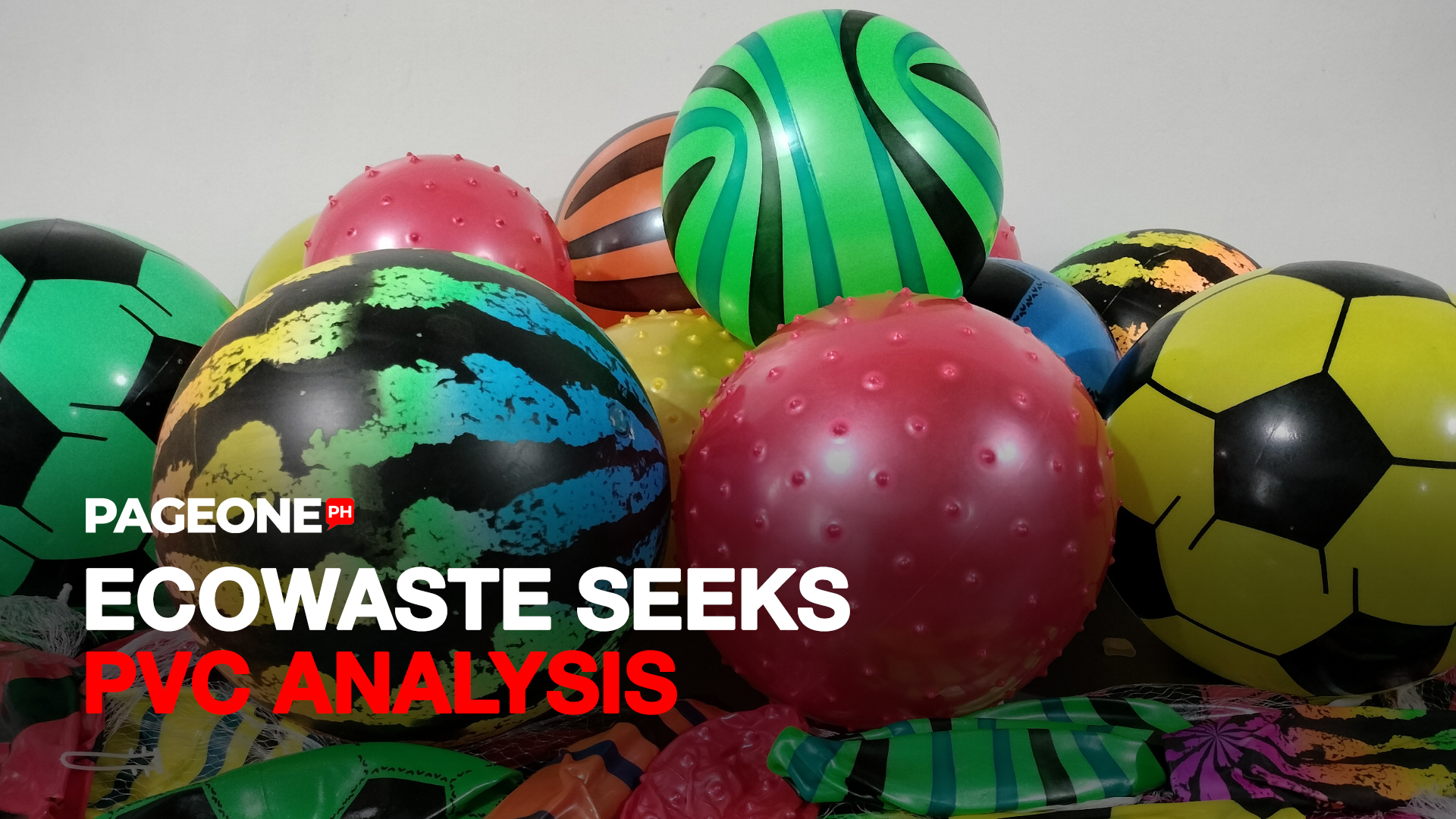The toxics watchdog group EcoWaste Coalition urged the Food and Drug Administration (FDA), the lead regulatory agency for toy safety, to test soft balls, specifically those made of polyvinyl chloride (PVC) plastic, for harmful chemicals that are banned or restricted in children’s toys.

The group made the suggestion after some European governments recalled or withdrew from the market several soft plastic balls, mostly made in China, for containing banned or restricted chemicals of concern, including endocrine disrupting chemicals (EDCs) like phthalates and persistent organic pollutants (POPs) like short-chain chlorinated paraffins (SCPPs)
“Our market investigation shows that similar soft PVC plastic balls are sold in the local market, including in online shopping sites, often without any labeling information,” said Manny Calonzo, Campaigner, EcoWaste Coalition. “To check if soft balls sold locally are safe for children to use, we urge the FDA to test these toys for phthalates and other regulated chemicals.”
“These unlabeled toys are sold without the FDA-issued certificates of product notification,” he pointed out, “in violation of the country’s toy authorization and labeling laws and regulations such as RA 9711 and RA 10620.”
On June 5 and 6, the group purchased 32 pieces of soft plastic balls sold for P6 to P25 each at retail and wholesale stores in Divisoria and Quiapo, Manila. Aside from being soft, the PVC plastic material used in the manufacture of these balls emits a strong noticeable odor. X-Ray Fluorescence (XRF) screening conducted by the group indicates that the said balls are made of PVC.
According to Safety Gate (the European Union’s rapid alert system for dangerous non-food products), the governments of Czechia, Germany, Poland, and Sweden have issued product safety alerts for the first five months of 2024 warning consumers of the risks of using certain soft plastic balls (also described as inflatable balls) for containing banned or restricted chemicals.
At least three of the toy products recalled or withdrawn in the European market resemble soft plastic balls sold locally, according to the EcoWaste Coalition.
For example, the inflatable ball with pattern in black, orange, yellow and green which the Swedish government banned in March 2024 is offered for sale in Divisoria. According to the alert issued by the authorities, the said ball contains excessive levels of diisobutyl phthalate (DIDP) and dibutyl phthalate (DBP) measured at 7.5% and 14%, way above the 0.1% limit. “These phthalates may harm the health of children, causing possible damage to their reproductive system.”
Aside from phthalates, the same toy was found to contain 2.7% of SCPPs, which are used as plasticizers and/or as flame retardants and are classified as POPs under the Stockholm Convention. “SCPPs persist in the environment, are toxic to aquatic organisms at low concentrations and bio-accumulate in wildlife and humans, posing a risk to human health and the environment,” stated the Swedish alert, adding “prolonged exposure to them through the skin may cause cancer.”
An inflatable ball similar to the one banned by the government of Poland in March 2024 is also sold in Divisoria. According to the Polish alert, “the toy has an excessive concentration of diisobutyl phthalate (DIBP) with measured value up to 9.4% by weight.”
A spiked soft plastic ball that the Polish government banned in April 2024 appears the same as the one purchased by the EcoWaste Coalition in Quiapo. The toy contains 19.5% of dibutyl phthalate and 1.45% of diisobutyl phthalate.
Also, a soft plastic ball banned by Germany had excessive concentration of the aromatic amine 4-methyl-m-phenylenediamine, which, according to the alert, “is a skin sensitizer, may cause cancer and might induce mutations and affect fertility.”
In a submission made last February 2024, the EcoWaste Coalition suggested to the FDA to ban the use of PVC plastic in the production of toys, noting that banned or restricted phthalates are often used and found in toys and childcare articles made of PVC.







